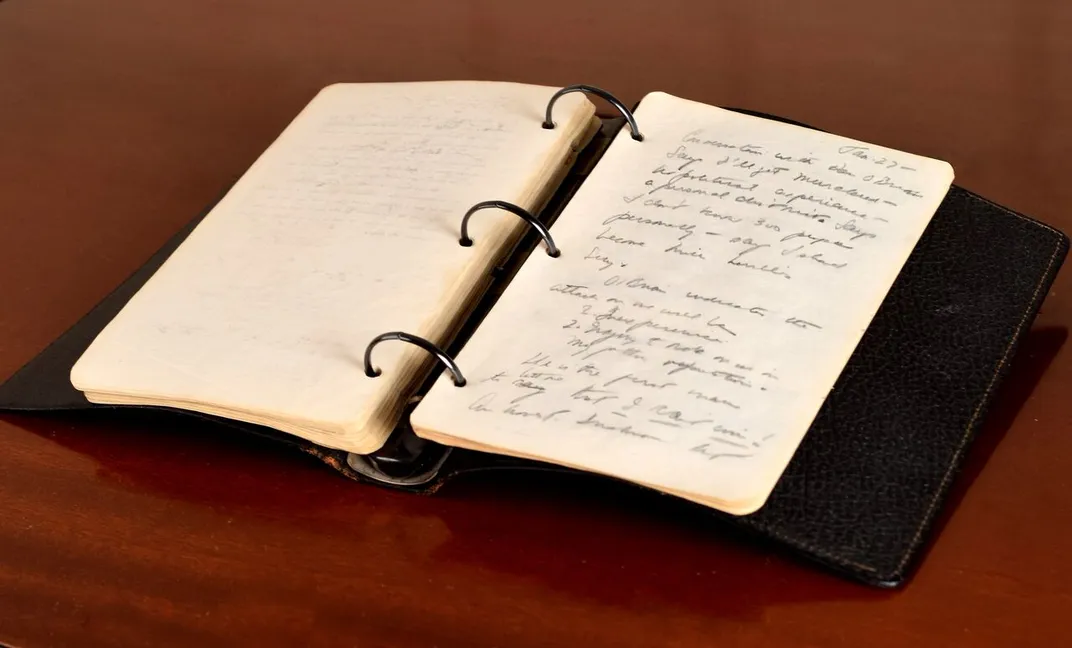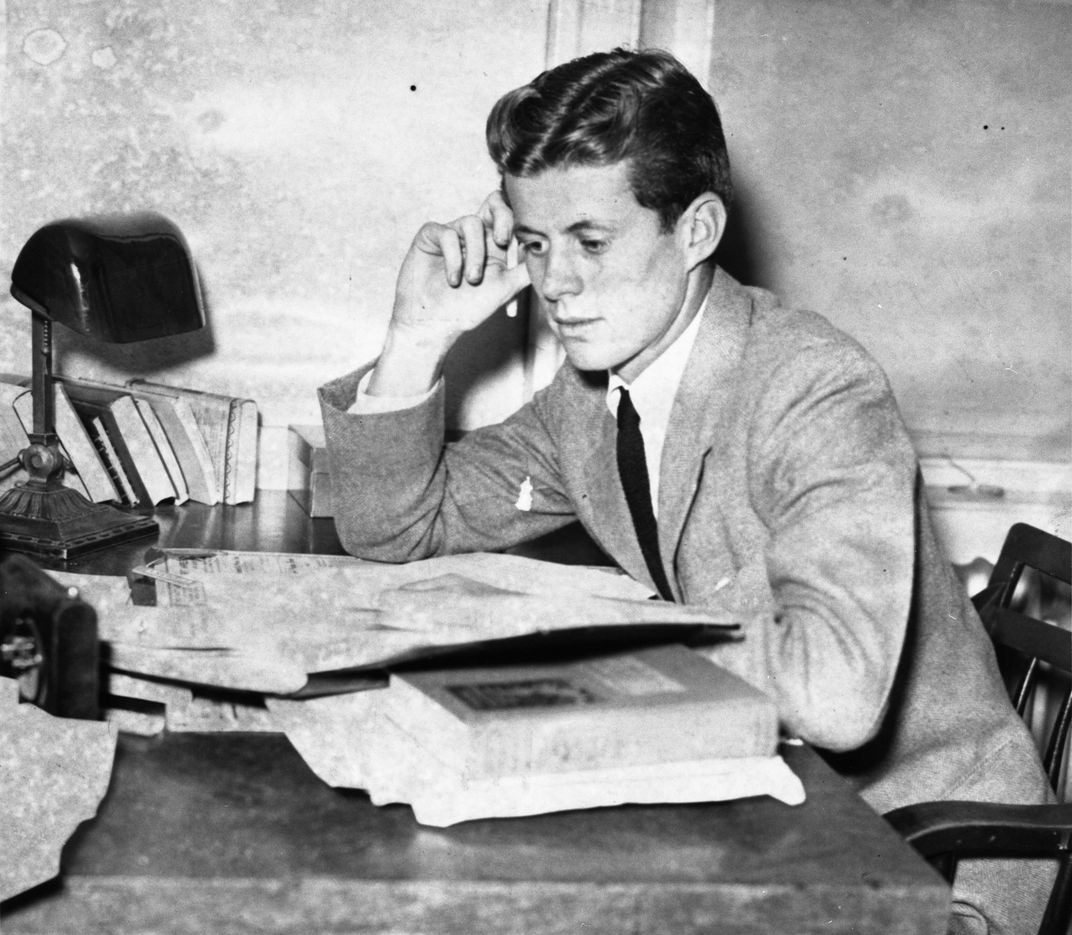Sold: Diary of 28-Year-Old JFK
Kennedy recorded his impressions of a formative trip through post-War Europe
/https://tf-cmsv2-smithsonianmag-media.s3.amazonaws.com/filer/6e/64/6e642662-0207-4369-87ea-11b9575836d1/unspecified.jpg)
In the summer of 1945, John Fitzgerald Kennedy, age 28, traveled throughout Europe as a reporter for Hearst Newspapers. Inside a three-ringed, leather diary, he chronicled his impressions of countries broken by war and plagued by political unease. That diary was recently sold for $718,750, according to RR Auction.
Kennedy gave the diary to Deirdre Henderson, a research assistant, tasked with coordinating an advisory committee for JFK’s first campaign for Congress. "Sen. John F. Kennedy gave me the diary in 1959 so that I could better understand his ideas on foreign policy," Henderson told Todd Bookman of NPR. "I shelved it. You had to realize the pace of the campaign.”
After Kennedy was assassinated in 1963, Henderson couldn’t bring herself to contend with the diary—the memories were too painful. So it sat on her shelf for some 30 years, until Henderson decided to publish the diary in the book Prelude to Leadership.
Included in the recent auction sale were 61 loose-leaf pages—some typed out by Kennedy, others hand-written—that had been organized into a small binder, according to RR Auction.

These pages describe a formative time for the young man who would one day become the 35th president of the United States. During his tour of Europe, Kennedy followed Winston Churchill on the campaign trail, viewed Hitler’s bunker in Germany, and attended the famed “Big Three” meeting between Churchill, Joseph Stalin, and Harry Truman. In his diary, Kennedy recorded his musings on French statesman Charles de Gaulle (“people are disappointed with [him]”), along with prescient thoughts on Russia.
“The clash with Russia...may be finally and indefinitely postponed by the eventual discovery of a weapon so horrible that it will truthfully mean the abolishment of all the nations employing it,” wrote Kennedy, who would spend much of his presidency contending with the threat of nuclear attack by the Soviet Union.
The devastation that Kennedy observed in post-War Berlin seems to have moved him deeply. He describes “the stench—sickish and sweet from dead bodies.” But his assessment of Hitler sparked a controversy when the diary was first published in the 1990s, according to NPR’s Bookman.
“[Y]ou can easily understand how that within a few years Hitler will emerge from the hatred that surrounds him now as one of the most significant figures who ever lived,” Kennedy wrote. “He had in him the stuff of which legends are made.”
In an interview, however, Henderson argued that Kennedy was not expressing German dictator, as Crystal Hill at the Associated Press reports. "He said that in reference to the mystery surrounding him and not the evil he represented," Henderson said.
Also contained in the diary are the reflections of a nascent politician. “The best politician,” Kennedy mused, “is the man who does not think too much of the political consequences of his every act.”
